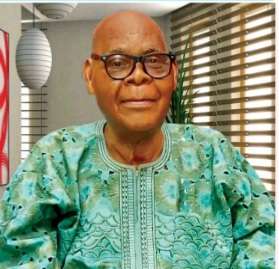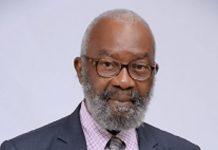
Editor’s note: At the onset of the Biafra war in July, 1967, a group of Igbo pharmacy students at the University of Ife (now Obafemi Awolowo University, Ile-Ife), found themselves in a conundrum – should they run for their lives or risk taking their exams and obtaining their much-anticipated degree? The intricacies and intrigues involved in their ultimate decision are not only interesting but very inspiring. Their individual narratives are presented in this and the next few editions.
The year 1967 was eventful in the history of Nigeria and, perhaps, more so for me, as a person. I had obtained a Diploma in Pharmacy, from the University of Ife (Ibadan Campus), in May 1964 and started working as a pharmacist at the General Hospital Lagos in June. In September 1966, I and some of my classmates (Ifeanyi Atueyi, Bona Obiorah, Eugene Okonkwo, Dennis Okolo, Lambert Eradiri, Pius Ogwueleka, Tola Ayuba, Ademola Odusote and others), returned to the university, having taken advantage of the concession granted to us by the university to upgrade our qualification to B.Pharm status after a session of study and success at the final B.Pharm degree examination.
I recall that the tension in the country had been very high since the January coup of 1966. In the first week of January, the following year (1967) the then Head of State, Col. Yakubu Gowon, and the Military Administrator of the Eastern Region, Col. Odumegwu-Ojukwu, signed the Aburi Accord in Ghana. This doused the tension for a while. However, when Gowon reneged the Accord and declared the 12 states in Nigeria on 27 May 1967, Ojukwu responded by declaring Biafra on 30 May. The peace accord totally broke down and tension in the country reached the highest level.
For us at the University of Ife, it was very depressing for both students and staff. It was expectedly more so for those of us of Igbo extraction in the 1st, 2nd and final years of the B.Pharm programme. Apart from those of us who had returned for the final year programme, there were the 1967 final year pharmacy students like Felix Agwaniru, Felix Anazodo, Edward Akagha, and Sam Chukwukere.
With the unbearable tension, we approached the head of the Department of Pharmacy, Dr Ayodele Tella, to let him know our dilemma and offer any advice or help because most of us had decided to leave for Biafra the following day as we were not sure of our safety. He showed much understanding of the situation but did not know how our safety could be guaranteed. He however helped us reach the Vice-Chancellor, Prof. Oluwasanmi.
The VC was very much saddened by the situation but had no idea of how our safety in the campus could be guaranteed. However, later in the evening on 31st , we were informed that following the VC’s consultation with the regional police command, there was no assurance of our safety from the police. They rather agreed to provide police escort for us while the university provided two luxury buses to take us to Asaba.
Mixed feelings
With this, we became a bit relaxed but deeply saddened that we were not going to achieve the goal for which some of us had returned to the university and studied for an academic session. Our dream of the much expected B.Pharm degree was being aborted a day before the final exams.
We converged that evening, and got ready to depart on the following day, 1 June. However, among us, there were some who made up their minds to stay back and risk the consequences. These were mainly the third year students who were the actual final year students in 1967 (the programme ran for three years then). They included Sam Chukwukere, George Ezenwa, Edward Akagha and Peter Ekwunife. Their argument was that those of us from the 1964 set were already registered pharmacists (as we had our diploma) and would be treated as such in Biafra. However, the entire first and second year students opted to leave. The few of them I remember now included Dick Nwoke, Evans Chidomere, John Obasi, Justina Ofodile, David Ifudu, and Ignatius Onaga.
In the morning of 1 June (Thursday), all of us who opted to leave assembled at the Potter’s Lodge to await the arrival of the bus and the police escorts, as arranged by the VC. Bona Obiorah, Eugene Okonkwo and I were also out there ìn our cars, ready to drive in a convoy with the bus. I had Ifeanyi Atueyi and Dick Nwoke in my car, while Bona and Eugene Okonkwo had Pius Ogwueleka and Dennis Okolo and a few others in their cars.
Our departure
The bus arrived the campus in the morning and the students boarded, while Dr Tella was there to bid us farewell and ensure that everything went well. We drove off from the campus and on our way stopped at the police headquarters in Agodi, Ibadan, for the police escorts to do the necessary clearance.
Thereafter, we proceeded from Ibadan through Ile-Ife, Ilesha and Owo, with occasional stops at popular travellers’ joints along the route, such as Agbanikaka, where maize and bush meat were available at cheap rates. It was at one of these stops that someone whose name I cannot now recollect came over to my car to inform us that someone had brought up the idea that those of us in the final year should consider returning to Ibadan to write the exams, starting the next morning. Atueyi and I began to ponder the suggestion as we continued the journey.
On arrival in Benin the police escorts took us to the Mid-West regional police headquarters and handed us over to them. While there, all of us in final year gathered to discuss the proposed return to Ibadan. We agreed to give the matter some serious thought as we continued the journey towards Asaba. We continued the journey from Benin with another set of escorts and arrived in Asaba at about 7.00 pm.
Our return
All of us in final year had a meeting during which we agreed to return to Ibadan that night in order to join in the examination starting by 9.00 am the next day. We found some food to eat and thereafter went to the garage to negotiate for a vehicle to take us back.
As for our cars, it happened that Obiorah had a townsman of his who owned a fuel station there. He approached him and the man agreed that we could leave our cars in his station until the time we would come back to pick them up.
After successful negotiations with the driver of a Peugeot 404 Station Wagon, we boarded the vehicle, with instructions to the driver to ensure he took us safely to the university campus in Ibadan by daybreak before the start of the exams. In the car were Obiorah, Okonkwo, Ogwueleka, Okolo, Atueyi and I.
We took off from Asaba at about 9.00 pm and had a smooth journey, until we got to the outskirts of Benin, where we observed a very long stretch of vehicles. It turned out that the military and the police had blocked the road to prevent entry of any vehicle into the city throughout the night. We felt depressed and even frightened by the development. We couldn’t do anything but to wait with sleepy eyes in the car.
Early in the morning, we summoned courage to go to the soldiers on guard. To our surprise, we met a friendly officer to whom we introduced ourselves and explained our mission. He showed understanding and even wished we had come to him in the night. He cleared the way for us to meander through the long stretch of vehicles, until we entered the town and were able to drive out to continue our journey.
The driver drove carefully but fast and brought us in front of the pharmacy department building at about 10.00 am, one hour after the exams had started. When Dr Tella and the invigilators saw us, they were filled with joy. We were ushered into the examination hall. Our colleagues who had chosen to stay back and those who had turned back midway were busy with their papers.
Mission accomplished
After taking our seats, we were given the question paper. The course was Pharmaceutical Chemistry and duration was two hours. We were assured that we would be allowed the time we had lost.
After the exams that morning, we reported at the Potter’s Lodge, where we collected the keys to our rooms and settled down for the remaining papers and the viva, in defence of our respective dissertations. The entire examination period lasted for about eight days, after which we took public transport back to Asaba, where we had parked our cars.
We were unhappy to observe that the Niger Bridge had been closed for traffic. We had no option but to abandon the cars there and cross over in a boat to Onitsha. From Onitsha I moved to Enugu to report for duty at the University of Biafra Teaching Hospital where I had been offered employment a few months back, while the hospital was still the University of Nigeria Teaching Hospital.
Retrieving my car
Just before the end of the month, I received information that Obiorah had gone to Asaba and brought his car to Enugu. The following day, I took permission from my boss and travelled to Asaba. On getting there, I noticed that the Niger Bridge was still not open to traffic. On inquiry, I was informed that cars were being ferried from Asaba to Onitsha by means of wooden boats.
I went to the petrol station where my car was parked. I met the owner, who helped me to start the car, after which I drove straight to the riverbank. There, I met some other car owners who were returning to Biafra.
I observed that some strong young men had organised themselves in groups of six. Their job was to deck an engine-powered wooden boat with strong sheets of plank, after which they would lift a car to the top of the planks and get it firmly tied to the boat on all sides. The car owner, with one or two of the young men would then board the boat and be ferried across to Onitsha. There, the men, with the help of their partners at the Onitsha end, would untie the car and bring it down from the wooden boat.
That was how I retrieved my car and drove it to Enugu.
Memoir
By Moses Azuike














Great historical facts some of us didn’t know about some of our colleagues. Reading this expose, certain things are clearer now.
Very interesting and informative journey down memory lane 👍.
Very interesting, Brave decisions and remarkable time of the Biafra Nigeria war